Abbiamo intervistato Trackmaster Lou, fondatore di Scan 7, il misterioso collettivo techno di Detroit, in occasione della ristampa del loro primo album “Dark Territory” su Tresor Records.
Scan 7 è un collettivo di musica elettronica di Detroit, fondato alla fine degli anni ’80 durante l’ascesa della seconda ondata di produttori techno della città.
Parte della famiglia allargata Underground Resistance, i membri di Scan 7 includono una formazione in continua evoluzione di musicisti e cantanti mascherati, guidati, però, sempre dal membro fondatore Trackmaster Lou, che abbiamo avuto il piacere di intervistare.
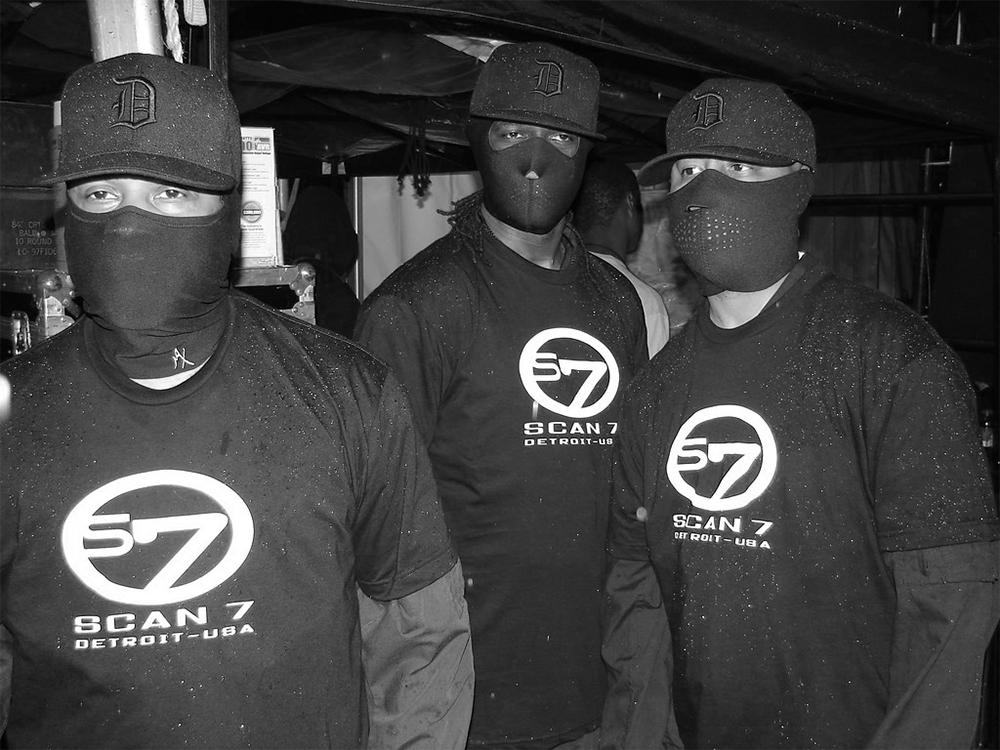
Un confronto stimolante sugli esordi, le origini del nome, gli strumenti utilizzati. Interessante è anche la sua disamina della scena attuale, dove esprime il suo pensiero.
«Penso che la cosa più importante sia pensare alla propria creatività interiore rispetto a ciò che è di tendenza. Ecco perché cerco anche di dire alle persone di non preoccuparsi solo del momento, ma dell’oltre.»
– Trackmaster Lou
Era il 1996 quando veniva pubblicato, per la prima volta, “Dark Territory“ sulla Tresor Records di Berlino. Pietra miliare della Detroit Techno, oggi l’album è stato rimasterizzato dall’ingegnere Mike Grinser, il quale, prendendo dai DAT originali, ha aumentato tracce già potenti come la dura “VII” e l’ipnotica, e provocatoria, nonché nostra premiere, “Unusual Channel” (mixata dal maestro Blake Baxter).
Tracklist
A1 – Planet Energy
A2 – Black Highway (Mixed by Blake Baxter)
B1 – Dark Universe
B2 – Unusual Channel (Mixed by Blake Baxter)
C1 – Beyond Sound
C2 – Dark Corridor
D1 – VII
D2 – Dark Territor
Label: Tresor Records
Artista: Scan 7
Titolo: Dark Territory (link d’acquisto)
Formato: Album (2LP Vinyl, Digitale)
Data Release: 29 novembre 2024
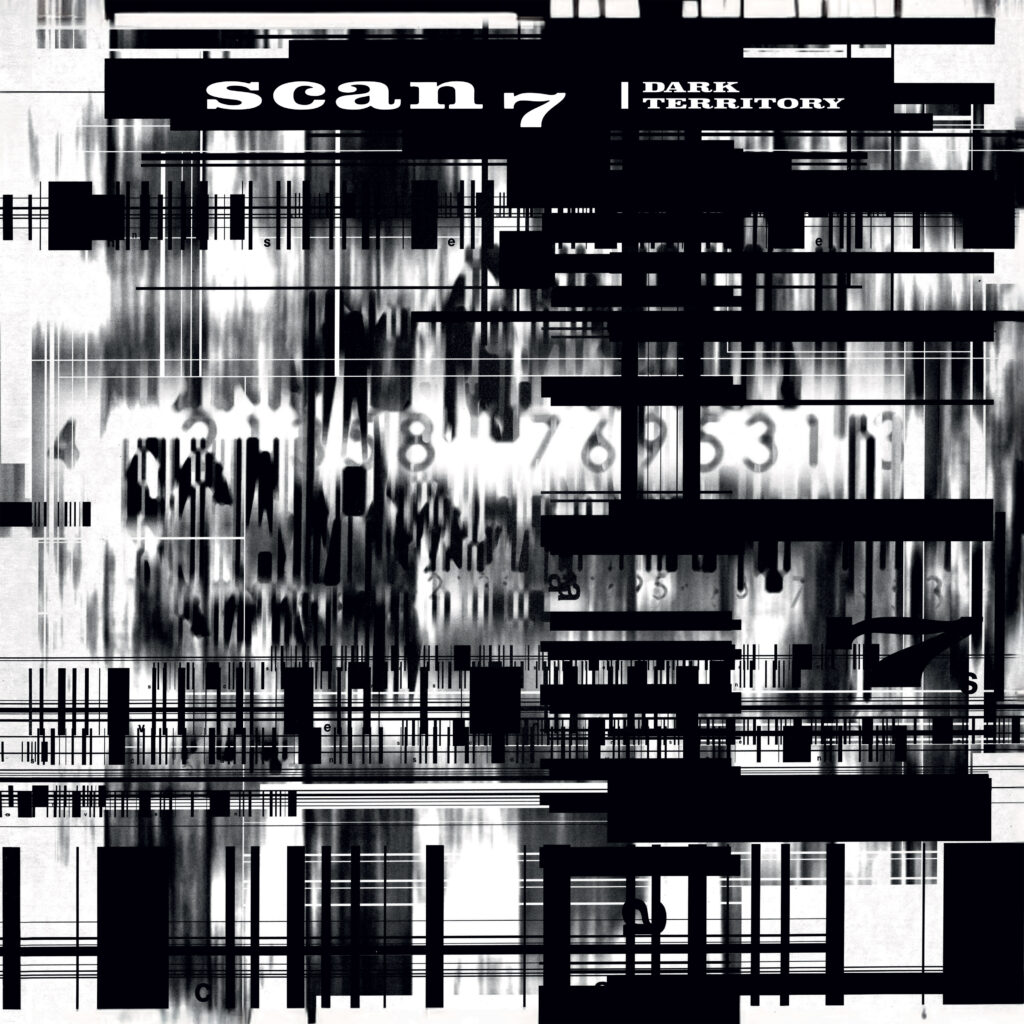
Si può dire che Tresor, rinnovando quel patto Detroit-Berlino, è tornata alla origini e con orgoglio ha annunciato la ristampa dell’LP di debutto di Scan 7, “Dark Territory”.
Ora, stampati in vinile, con una grafica (leggermente) aggiornata, questi brani suonano ancora come modello per il futuro, a testimonianza della lungimiranza e della sicurezza che il leader degli Scan 7, Trackmaster Lou, aveva in mente quando, quasi 30 anni fa, scrisse nelle note di copertina:
«I HOPE YOU WILL ENJOY MY RECORDS IN THE PHUTURE TO COME.»
– Trackmaster Lou, 1996 – note di copertina “Dark Territory”
(Spero che apprezzerete i miei dischi nel futuro a venire, ndr)
E così è stato. Una profezia. Basta ascoltare le tracce, come la nostra premiere, per apprezzarne la freschezza.
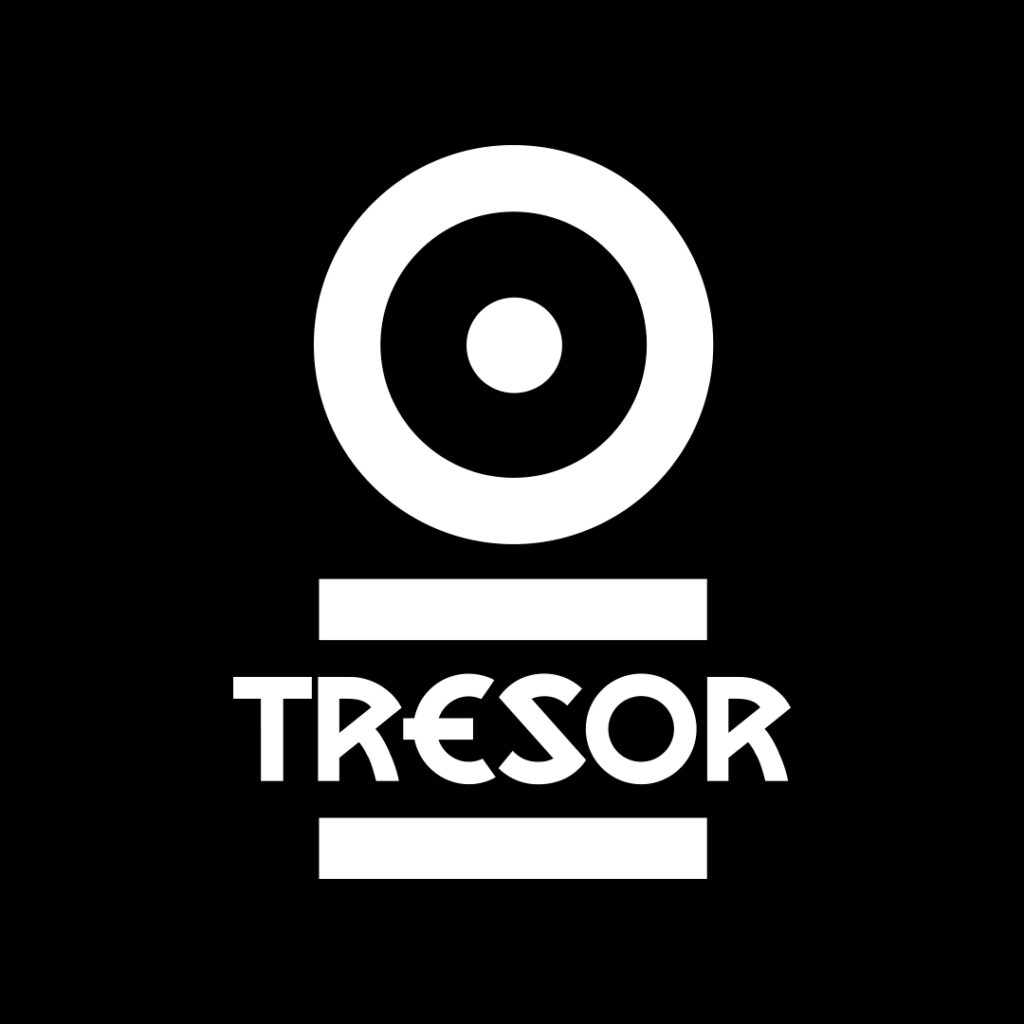
Adesso, rimasterizzato e rimontato in vinile, l’album è disponibile, per la prima volta, anche in digitale. Un disco ancora in anticipo sui tempi, che sottolinea la brillantezza immortale della techno di Detroit.
«Il numero 7 è un numero molto simbolico e molto speciale. […]
Trackmaster Lou – segue nell’intervista
Se ci pensi siamo tutti dei sette.»
Ciao Trackmaster! Benvenuto su Parkett. Per me è un onore averti qui. Mi piacerebbe partire da una cosa “semplice”. Cosa rappresenta per te la Detroit Techno?
Ciao Nicola! La Detroit Techno ha influenzato ed è tutt’ora la mia vita.
Quali sono, allora, i punti fissi di riferimento per il vostro suono? E cos’è cambiato dall’esordio a oggi?
Direi non molto. Usavo le drum machine Roland R8 e Yamaha RX5. La Yamaha la uso ancora dagli anni ’80. Una macchina incredibile. Le tracce su UR, Tresor e la maggior parte dei suoni nei miei set live di oggi sono state create partendo da lì.
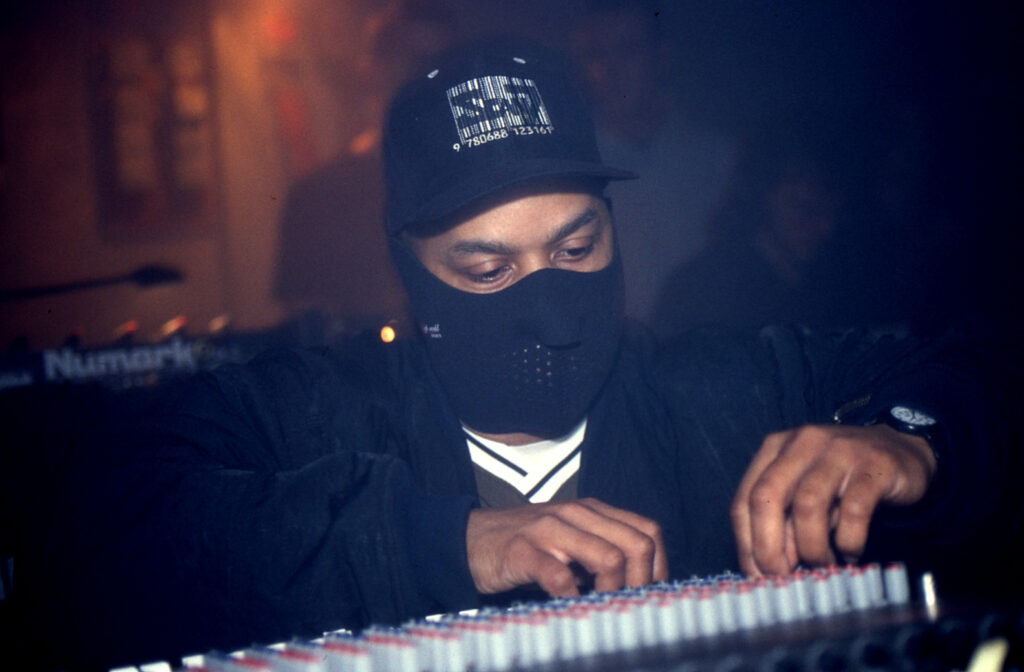
Ma per cosa sta il nome Scan7?
Scan nella parola stessa è: tecnologia. Scan significa verificare, guardare le cose da vicino. Dico sempre alla gente: “scansiona te stesso” per analizzare dove ti trovi – nella vita, nella musica, in generale.
Mentre il numero 7 è un numero simbolico e molto speciale. Sono nato e cresciuto a Detroit, vicino a 7 Mile. Il prefisso di Detroit è 313, che equivale a 7. Ci sono sette lettere nella parola Detroit. Scan 7 aveva originariamente 7 membri e se guardi l’alfabeto americano, la settima lettera è la G, rappresentativa del Dio creatore: c’è pure un lato spirituale. Quindi sono così devoto al numero sette.
Abbiamo anche 7 Chakra nel corpo. Se ci pensi, siamo tutti dei sette.
Ormai si parla molto della presunta crisi del settore della musica techno. I club a Berlino chiudono (per problemi economici legati ad affitti, gentrificazione o simili). Ma anche in Italia si non sta vivendo un periodo splendido. A Detroit, invece, com’è la situazione clubbing?
Qui facciamo ancora feste e abbiamo la giovane generazione che porta la sua visione. Non è mai stato facile a Detroit, ma continuiamo.
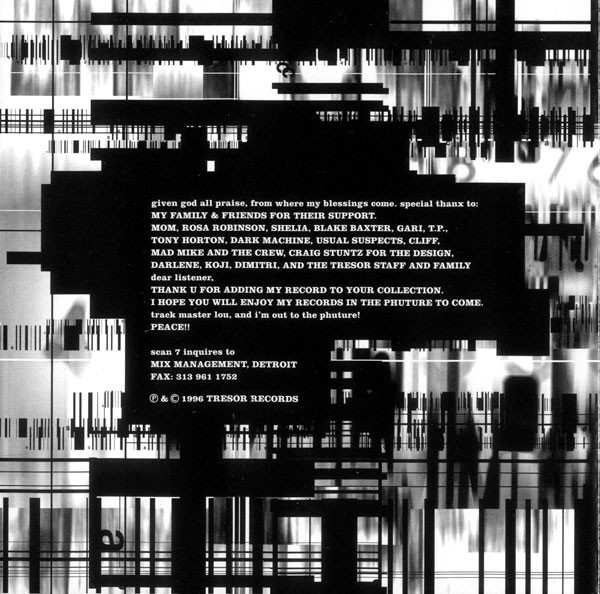
Cosa pensi dell’attuale scena elettronica? (Intendo “TikTok Techno”, la moda di fare “spinning” dietro le console, l’hard-techno moda del momento, eccetera). Quanto distante, o quanto vicina, la sentite a voi?
Penso che la cosa più importante sia pensare alla propria creatività interiore rispetto a ciò che è di tendenza. Ecco perché cerco anche di dire alle persone di non preoccuparsi solo del momento, ma oltre. Questo ti consentirà di avere longevità. Perché se fai cose di tendenza ora, dove sarai tra 2-3 anni? Ti perderai.
«Non puoi avere il presente senza il passato.»
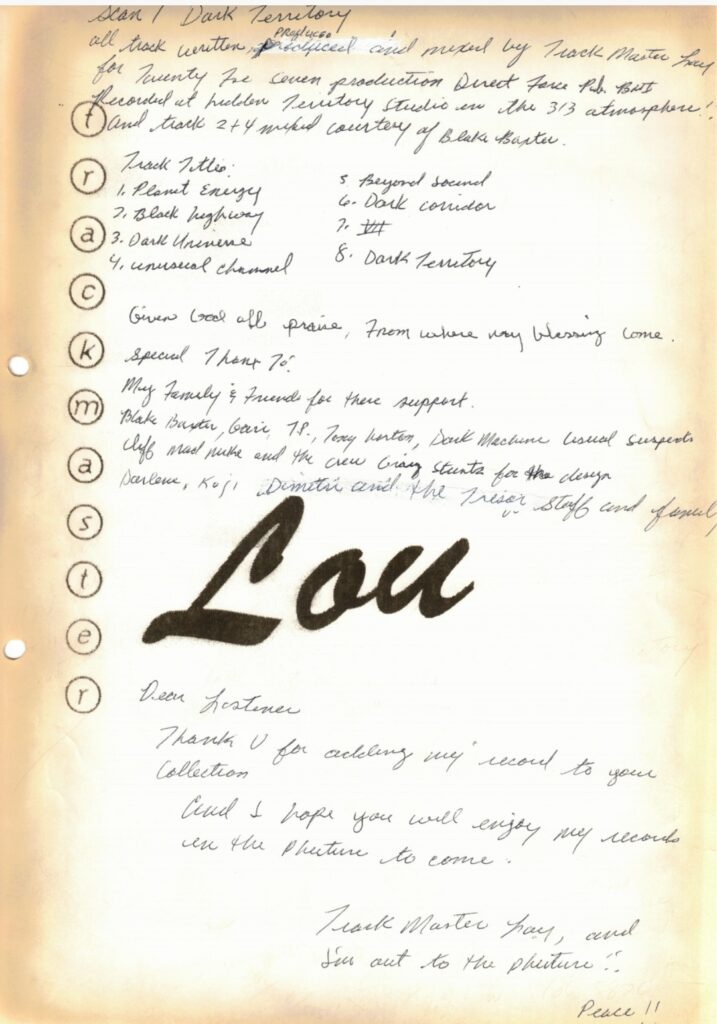
Il file originale del fax che Trackmaster Lou inviò, con i crediti per l’album, alla Tresor Records (per gentile concessione di Carola Stoiber)
Ma nel clima odierno, è quasi come parlare a un muro. Non puoi avere il presente senza il passato. È impossibile. Tutte le generazioni dovrebbero abbracciarsi a vicenda, se vogliamo che questo continui e vada oltre la nostra immaginazione in questo mondo.
Ma come si è sviluppato il legame con Tresor? E, prima ancora, con Underground Resistance?
Negli anni ’80 ero in un gruppo chiamato Separate Minds con Marc Kinchen e Terence Parker (TP). Dopo che ci siamo sciolti ho iniziato a produrre tracce Techno e ho dato loro Mike Banks di UR per dargli un’occhiata. Mi ha rimandato in studio un paio di volte, ma un giorno erano pronti… e lui ha pubblicato l’EP “Black Moon Rising”, era il 1993.
Blake Baxter, invece, mi ha aiutato con l’album “Dark Territory”, nel ’96. L’ho registrato nel mio Hidden Territory, ho fatto un mix down nel suo studio e lui ha anche fatto alcuni remix. Quando è stato pronto mi ha presentato alla gente della Tresor Records, Carola Stoiber e Marc Snow, e ho firmato.
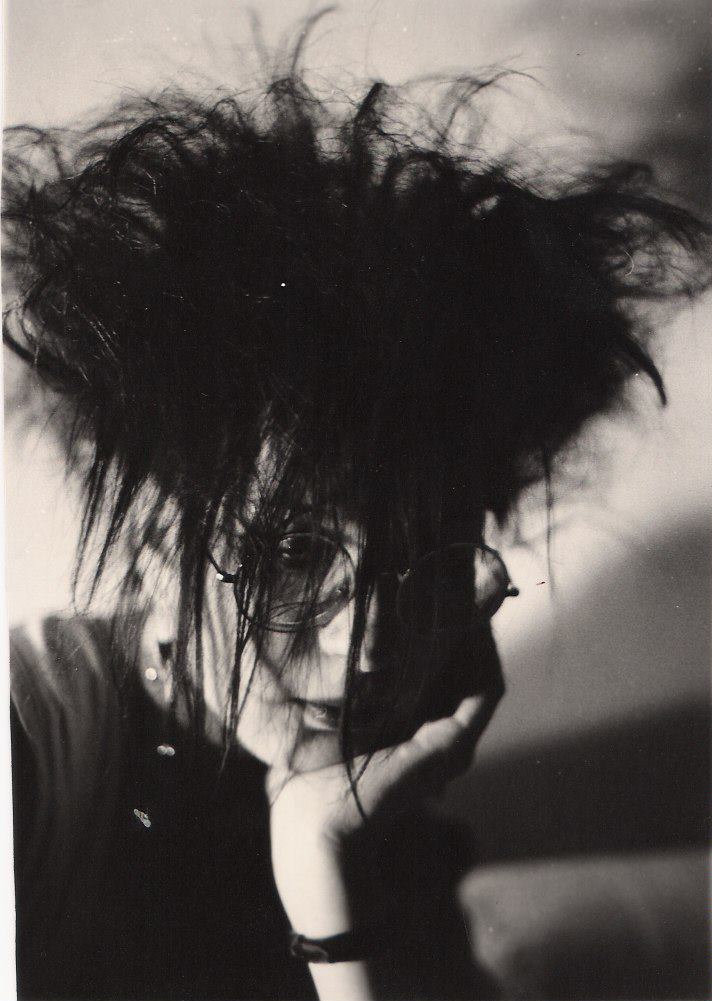
Leggi anche: “Intervista: Carola Stoiber ci ha raccontato in esclusiva la genesi della techno berlinese”
C’è un motivo dietro la volontà di ristampa di “Dark Territory” in questo momento storico?
Sono sempre tornato a suonare alla Tresor nel corso degli anni. Poi, gli attuali responsabili dell’etichetta mi hanno proposto di rendere l’album disponibile in digitale e anche di ristampare il vinile per la prima volta dal 1996.
Mi sono sentito onorato e spero che le persone che lo scopriranno ora lo apprezzeranno. È stato il mio album di debutto.
Noi non abbiamo nessun dubbio al riguardo. E io ti saluto e ti ringrazio per la disponibilità. Ciao!
Grazie a voi.
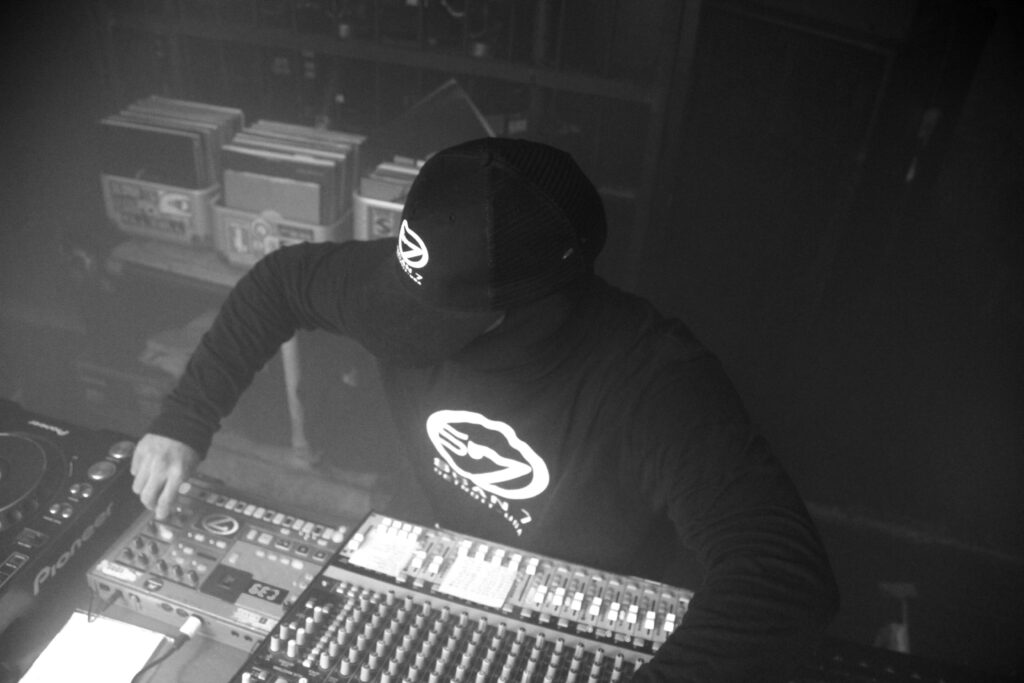
*artist photo by Marie Staggat
ENGLISH VERSION
Ciao Trackmaster, welcome on Parkett. It’s an honor to have you here. I’d like to start with something “simple”. What does Detroit Techno represent for you?
Greetings, Nicola. Simply, Detroit Techno influenced and is my life.
So, what are the fixed points and references for your sound? (if there are any) And what has changed from your debut to today?
I’d say not much. I used the Roland R8 and Yamaha RX5 Drum Machines. The Yamaha I still use since the 80s. An amazing machine. Tracks on UR and Tresor were made from the it and the majority of the sounds in my live sets today.
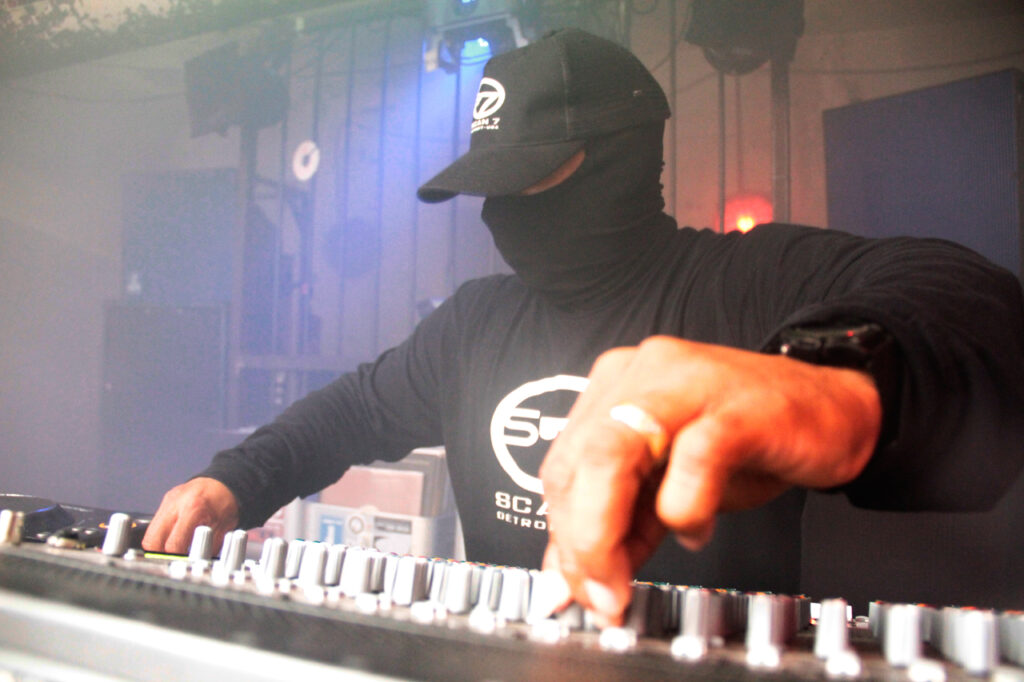
But what does the name Scan7 stand for?
Scan in the word by itself: it’s technology. Scan means to verify, look at things closely. I always tell people: ‘scan yourself’ to analyse where you are at – in life, music, in general.
And the number 7 is a very symbolic and very special number. I was born and raised in Detroit off 7 Mile. The Detroit area code is 313 which equals 7. There are seven letters in the word Detroit. Scan 7 had originally 7 members and if you look at the American alphabet, the 7th letter down is G which represents the creator God: one spiritual side.
So I’m so officiated on the seven. We got, also, 7 Chakras in a body. We’re all sevens if you think about it.
There’s a lot of talk about the alleged crisis in the techno music sector. Clubs in Berlin are closing (they say due to economic problems related to rent, gentrification or similar). But even in Italy we’re not experiencing a great period. In Detroit, on the other hand, what’s the clubbing situation like?
We still have parties and we have the young generation bringing their vision in. It was never easy in Detroit but we keep on.
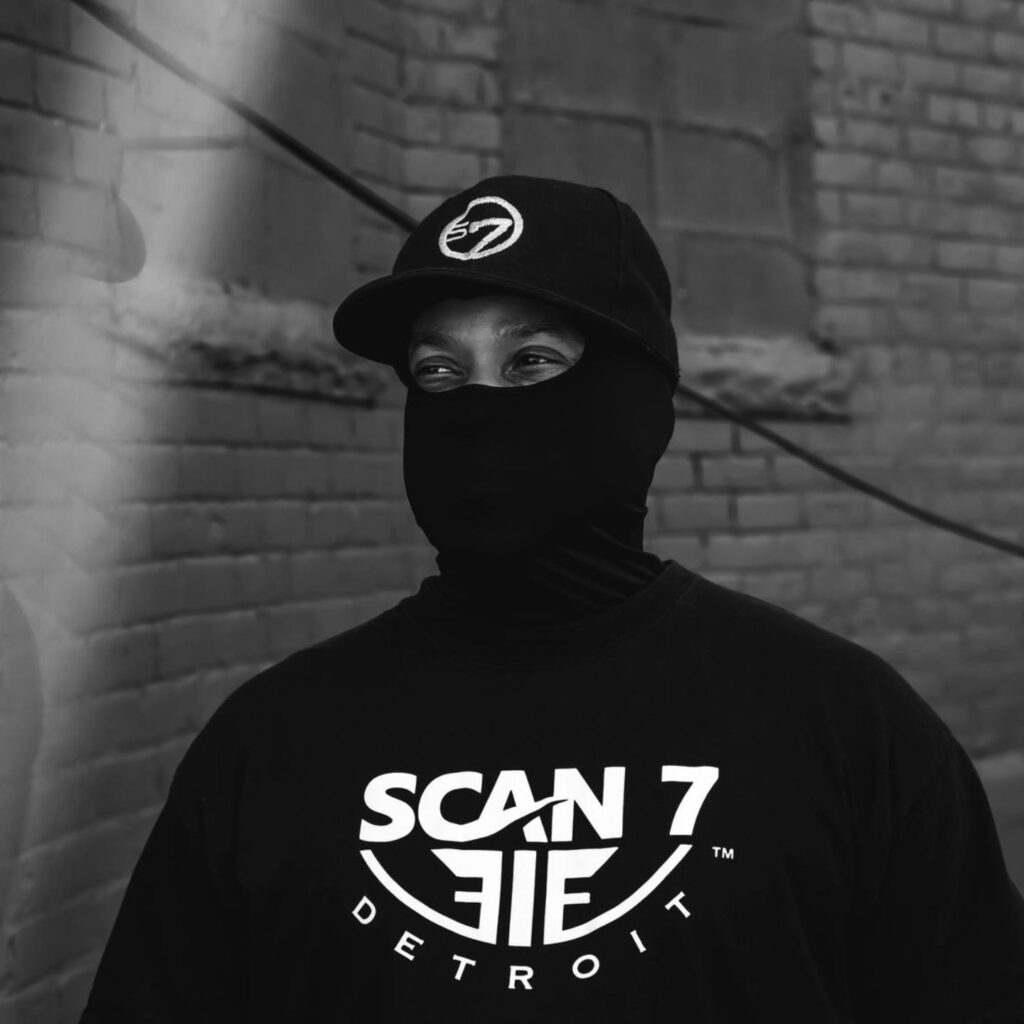
What do you think of the current electronic scene? (I mean “TikTok Techno”, the trend of “spinning” behind the consoles, hard techno current fashion, etc). How distant, or how close, do you feel it to you?
I think the most important thing is to think about one’s all inner creativity versus what’s trendy. That’s why I also try to tell people not to worry just about the moment, but beyond. That will allow you to have longevity. Because if you do the trendy stuff now, where are you going to be 2-3 years from now? You will be lost.
But in today’s climate, that’s like almost talking to a wall. You can’t have the present without the past. It’s impossible. All generations should embrace each other if we want this to continue and further beyond our own imagination in this world.
How did the bond with Tresor develop? And with Underground Resistance?
In the 80ies I was in a group called Separate Minds with Marc Kinchen and Terence Parker (TP). After we split up I started to produce Techno track and gave them Mike Banks form UR to check them out. He sent me back into the studio a few times but one day they were ready and he released the “Black Moon Rising” EP in 1993.
And Blake Baxter helped me with the “Dark Territory” album, in the 96s. I recorded it in my Hidden Territory, did a mix down in his studio and he also did some remixes. When it was ready he introduced me to the Tresor Records people, Carola Stoiber and Marc Snow, and it got signed.
Is there a reason behind the desire to reissue “Dark Territory” in this historical moment?
I always came back to play Tresor over the years. Then the current label managers came up to me with the idea to make the album available digitally and also repress the vinyl for the first time since 1996.
I felt honoured and I hope people who discover it now will like it. It was my debut album.
We have no doubts about it. And I greet you and thank you for your availability. Bye!
Thanks to you.
